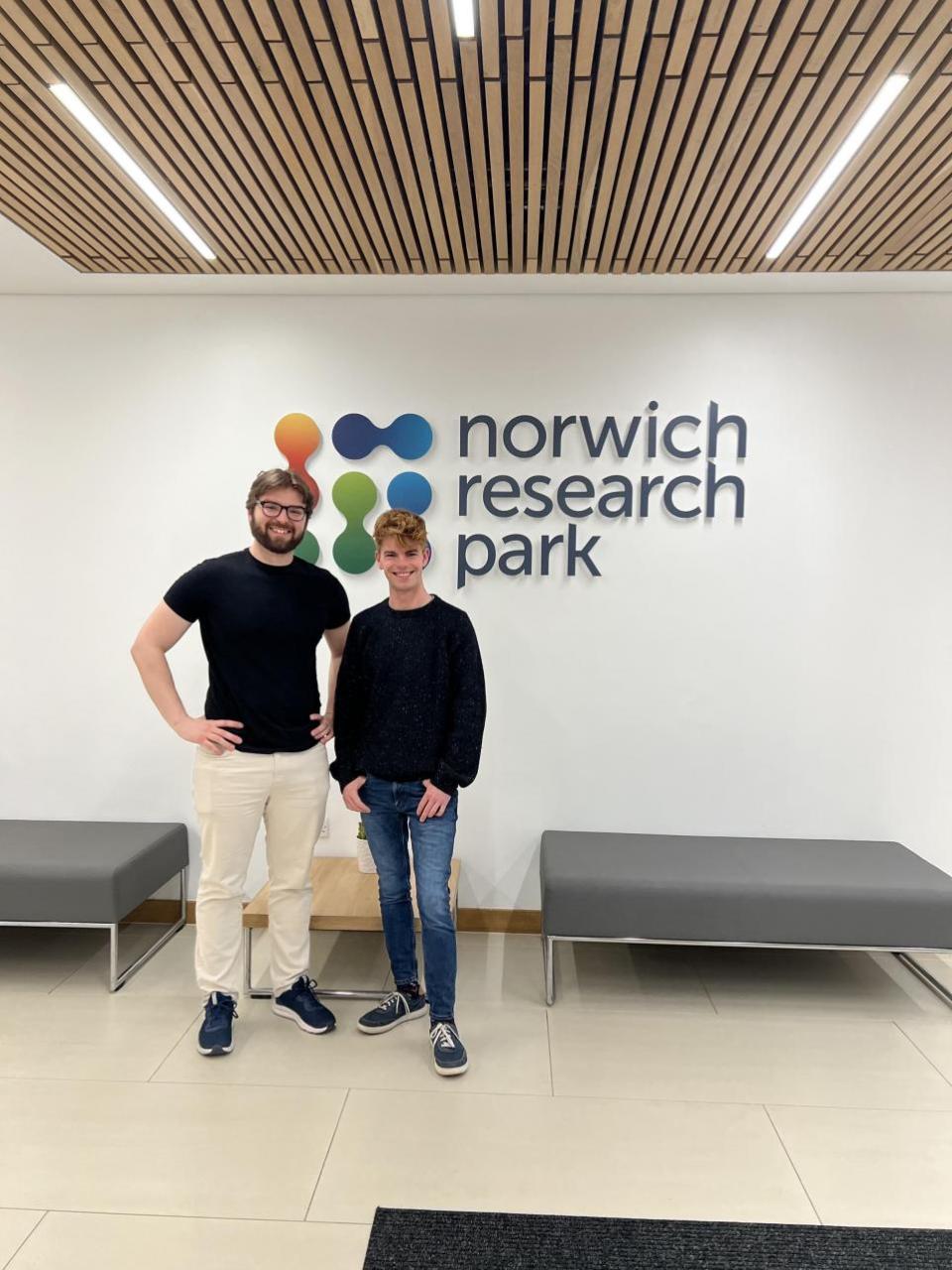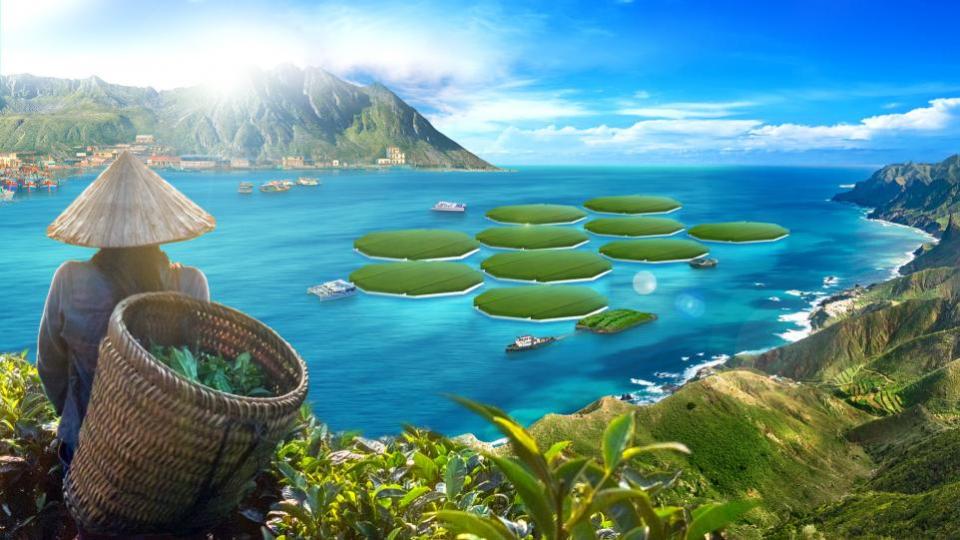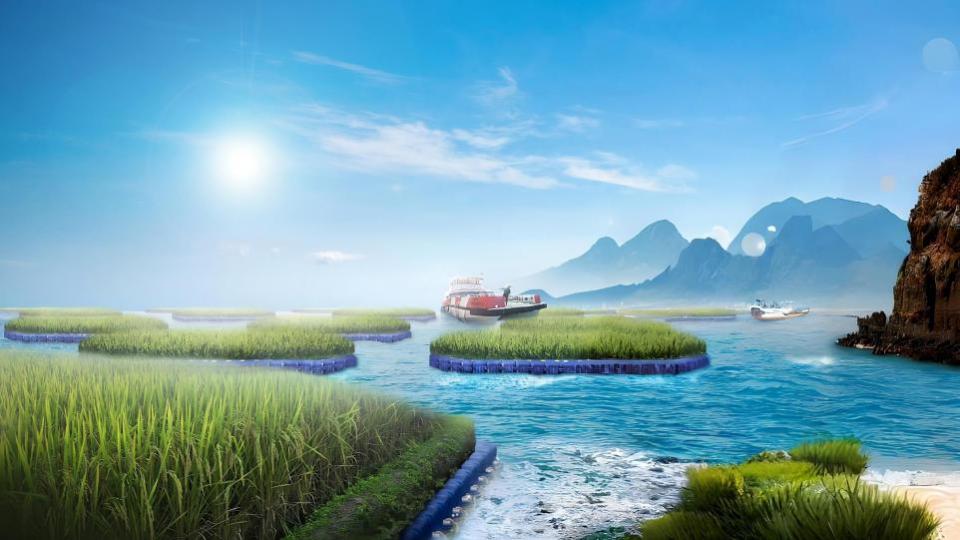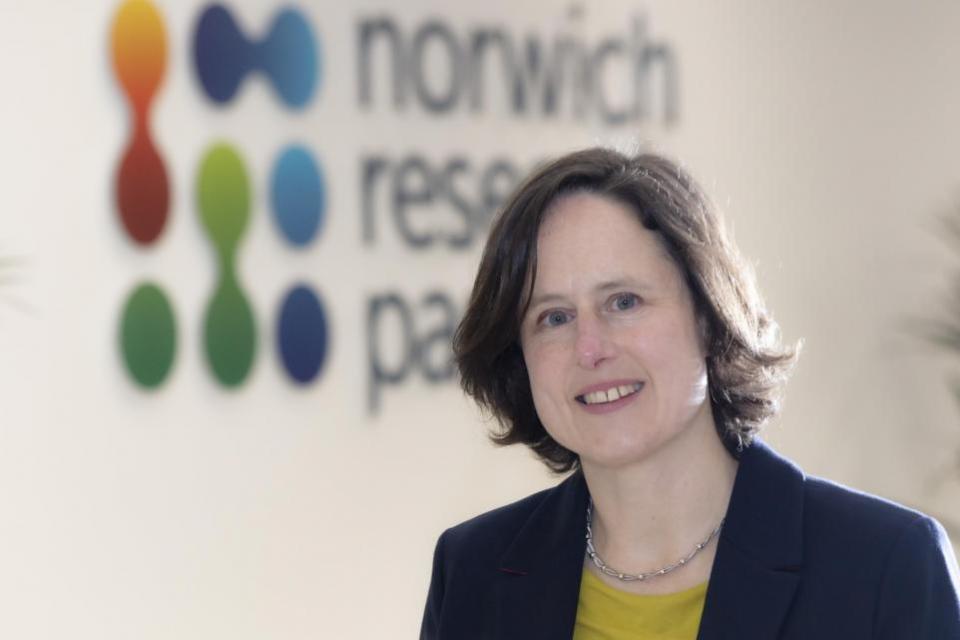‘Ending world hunger, achieving food security and improved nutrition, and promoting sustainable agriculture’ is the second goal of the United Nations. And it’s a problem that a company based in Norwich Research Park can certainly help solve by growing rice on the surface of the ocean.
Alora aims to create the world’s first ocean farming system with revolutionary technology that will increase yields, use no fresh water and minimal land.
It has developed a patented genetic design that allows its rice crop to grow in the highly saline environment of an ocean. This means that crops can be grown without fertilizer or freshwater, while achieving higher yields and lower production costs. It has already developed a salt tolerance trait that allows rice to grow in environments with salinities up to 50% higher than that of the oceans.
Using marine nutrients, a symbiotic approach and custom-designed soil replacement equipment, Alora’s ocean farming has higher yields than both traditional and modern food growing methods, with the developed platforms alone increasing yields by up to 70%.

Luke Young (left) and Rory Hornby met while studying for their science degrees at Durham University (Image: Alora)
Alora was co-founded by Luke Young and Rory Hornby, both 28, who first met while studying for their science degrees at the University of Durham.
“We first became friends because we were the only two people on our course who wanted to talk about science outside of our lectures,” says Luke. “We discovered that we were both fascinated by its possibilities and we talked about many ideas.
“But the most important thing for both of us is that we wanted to apply the results of scientific research so that it could have a positive impact on society. That gave us the idea to start a company.”
There were many possibilities open to the friends, but the one that really got them excited was how they could help solve the world hunger crisis. Ocean agriculture was the vision they shared.
“The first question we had to answer was why the world’s food shortage is such a crisis, when billions of pounds are being pumped into it every year,” says Rory. “The answers lie in the limitations of agriculture.
“One is the amount of fertile land available that contains all the nutrients needed to grow crops, and the other is the available source of good fresh water. We realized that both exist in our oceans and started designing our solution.”
Of course, the biggest problem they faced was that ocean water has high salinity, which is normally not a good environment for growing staple crops. The solution was to develop salt-tolerant rice varieties that would adapt to the ocean environment, be able to absorb available nutrients and survive in water that is more salinized than a land environment.
They did this by using gene editing techniques to identify and ‘switch on’ the salt-tolerant genes in the rice varieties they patented. The plant’s stem cells are then transformed and can be regrown with active salt tolerance. The rice is grown on ocean surface ‘farms’, which consist of several covered pods to protect the growing rice from birds and the weather.


Several partnership and pilot projects are underway around the world in places like the US, Grand Bahama Island, Kenya, Namibia, Madagascar, Singapore, Vietnam and India (Image: Alora)
This way of growing rice also has a positive impact on the environment. Field-grown rice is responsible for creating 1.5 percent of all global greenhouse gas emissions, linked to the soil bacteria that thrive in rice fields. That problem is solved by growing rice on the ocean surface.
Interest in their ideas was so great that IndieBio, a biotech accelerator program based in San Francisco, California, invited Luke and Rory to set up Alora, where it funded a development program for them.
While there, they caught the attention of a Singaporean investor, who funded the $500,000 USD they needed to get things off the ground.
With the concept proven, they moved to Canada to continue their work developing the first high salt tolerance crop, sea farms and a stealth bacterial technology with the aim of launching Singapore’s first ocean farm pilot in 2022 .
After raising $3.7 million from investors, they started looking for a base from which to build their company. After visiting many potential locations, including San Diego and Boston in the US and Amsterdam in Europe, they decided that Norwich Research Park offered them the best location to successfully grow the company. They moved into the Center Building in February this year.
“I knew of the fantastic reputation that the John Innes Center has for plant science through some friends who worked there, so I knew about the existence of Norwich Research Park,” said Luke. “But we didn’t know how big and suitable it was until we got there.
“The Anglia Innovation Partnership team were very proactive in guiding us around and putting together an itinerary to meet key people on campus.


Alora has already developed a salt tolerance trait that allows rice to grow in environments with salinities up to 50% higher than that of the oceans. (Image: Alora)
“But honestly, as soon as we walked into the Centrum building, we knew this was going to be our home. The opportunity to work with the Park’s six partner institutions, the world-class facilities and the talent pool we could tap into as we grew our business made for an unbeatable proposition.
“And with plans for new buildings to move into as we expand, combined with so many other things at our fingertips, we were able to make the decision to move here in just 24 hours!”
The coming year is expected to be a very exciting one for Luke, Rory and their team. They are currently preparing to open their Series A funding round later this year, where they hope to raise between $15 and 30 million USD to fund their Norwich location and their pilot projects around the world.
They are now recruiting to expand their team from five to about a dozen, and to bring their first products to market, which they expect to be in the salt-affected soils of South America, Southeast Asia, South -Africa and the US. .
There are currently several collaboration and pilot projects underway around the world, including in the US, Grand Bahama Island, Kenya, Namibia, Madagascar, Singapore, Vietnam and India, where they hope to harvest rice for the local population.
The opportunities ahead of them are enormous. Currently, the land-based rice market is worth approximately US$376 billion, while up to a third of irrigated rice fields today are affected by salt intrusion. With ocean-based rice farming, where costs such as irrigation, pesticides and fertilizers are not required and yields are expected to be better than those of land-grown rice, this will mean greater profitability and therefore greater sustainability.
Plus, there’s the added benefit of a smaller carbon footprint. And they don’t plan to stop at rice. Soybeans and cotton are next on the list for ocean farming.


Roz Bird, CEO of Anglia Innovation Partnership (Image: Chris Ball Photography)
Roz Bird, CEO of Anglia Innovation Partnership, said: “We are absolutely delighted that Alora has chosen Norwich Research Park to grow his business and develop his truly innovative and ground-breaking products.
“As one of the largest research communities in Europe, providing access to specialist technology platforms, networks and expertise, to meet Alora’s evolving needs, I have no doubt that they will succeed, following in the footsteps of the likes of Colorifix and Tropic. solutions to some of the world’s most critical problems, such as food security, while creating new jobs for our local economy.”